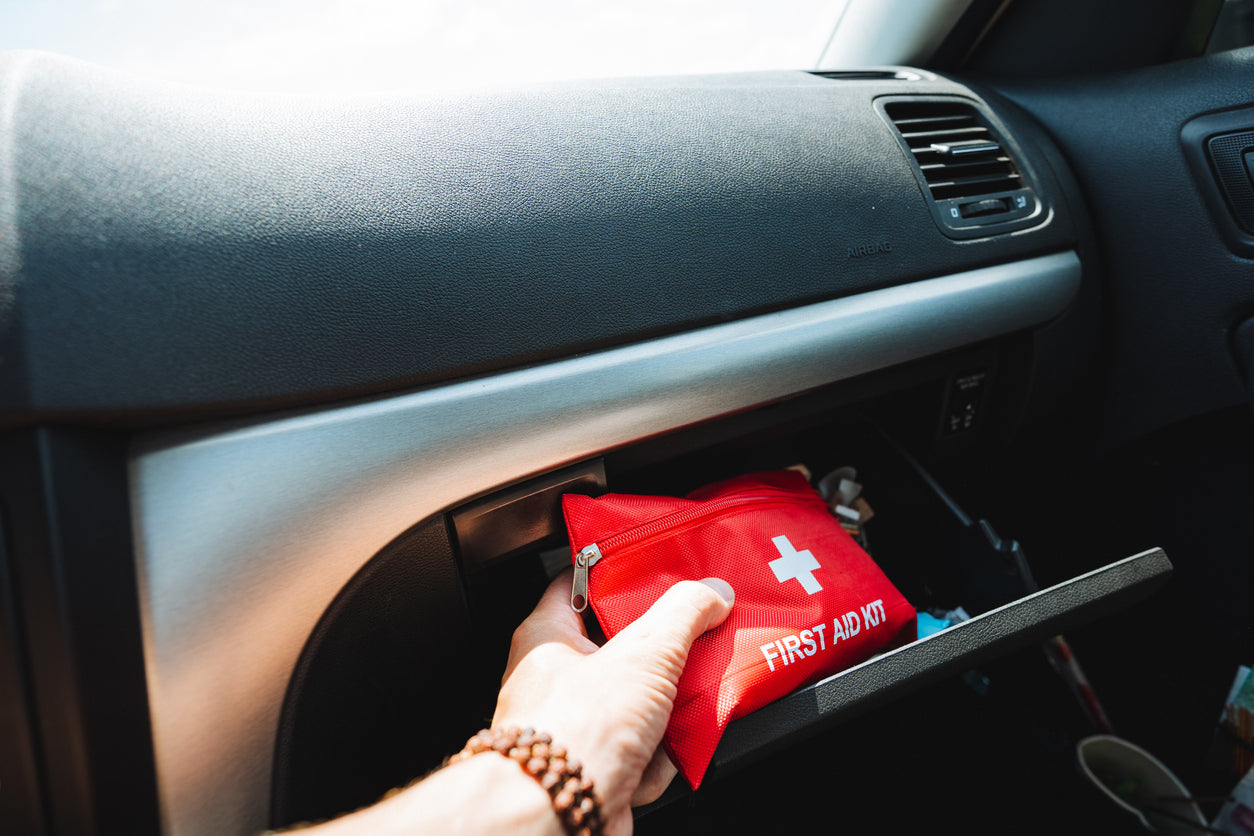Winter travel is magical, but it comes with unique challenges, from icy roads to unpredictable weather. Being prepared with the right safety kit can make all the difference between a smooth journey and an unplanned emergency. Whether you’re hitting the road, flying to a winter wonderland, or exploring snowy terrains, here’s a comprehensive guide to the essential safety items you should pack this winter.
Why You Need a Winter Travel Safety Kit
Winter conditions can be harsh and unpredictable. Snowstorms, icy roads, and freezing temperatures increase the risk of delays, accidents, and health emergencies. Having a safety kit ensures you’re prepared for these scenarios, whether you're traveling by car, train, or plane.
The Must-Have Items for Your Winter Travel Safety Kit
1. Warm Clothing and Accessories
Winter weather can be unforgiving, and hypothermia or frostbite is a real risk in extreme cold. Pack clothing that will keep you warm and dry.
- Thermal layers: Lightweight and compact, thermal wear is essential for insulation.
- Gloves, hats, and scarves: Protect extremities where heat escapes fastest.
- Extra socks: Wet feet can lead to cold-related illnesses. Wool socks are ideal for warmth.
2. Emergency Food and Water
In case of delays or being stranded, having food and water on hand is crucial.
- Non-perishable snacks: Protein bars, trail mix, and dried fruits are compact and energy-boosting.
- Water bottles: Insulated bottles can prevent freezing and keep beverages warm.
- Water purification tablets: Useful in emergencies to make unsafe water drinkable.
3. First Aid Kit
A basic first aid kit can help treat minor injuries or illnesses. Ensure your kit includes:
- Adhesive bandages in various sizes
- Antiseptic wipes and ointment
- Pain relievers (e.g., ibuprofen or acetaminophen)
- Thermometer
- Medications for specific needs (e.g., allergy pills, inhalers)
4. Portable Power Supplies
Freezing temperatures can drain batteries quickly. Ensure your devices are charged and ready.
- Portable charger or power bank: Keep your phone and GPS powered.
- Extra batteries: Especially for flashlights, cameras, and other devices.
- Car adapter: Charge devices directly from your vehicle.
5. Flashlights and Lighting
Winter days are short, and you might find yourself navigating in the dark.
- LED flashlight: Long-lasting and reliable for emergencies.
- Headlamp: Allows hands-free operation, useful for setting up tire chains or navigating trails.
- Glow sticks: Simple and effective for signaling in low-visibility situations.
6. Tools for Snow and Ice
Snow and ice can quickly derail your plans, especially if you’re driving.
- Ice scraper and snow brush: Clear windshields and windows efficiently.
- Shovel: A compact, foldable shovel can help dig your car out of snow.
- Tire chains: Essential for traction on icy roads, particularly in mountainous areas.
- Sand or cat litter: Spreads under tires to improve traction when stuck.
7. Blankets and Sleeping Bags
In case you’re stranded for long periods, staying warm is vital.
- Thermal blankets: Lightweight and compact, ideal for emergencies.
- Sleeping bag: Opt for one rated for sub-zero temperatures if traveling in extreme conditions.
8. Navigation and Communication Tools
Getting lost in winter conditions can be dangerous. Stay on track with these essentials:
- Map and compass: Reliable backups in case GPS fails.
- Hand-crank or battery-powered radio: Stay updated on weather alerts.
- Fully charged cell phone: Pre-program emergency contacts and download offline maps.
9. Emergency Signaling Devices
If you’re stuck in an isolated area, you’ll need a way to signal for help.
- Whistle: Loud and easy to use, perfect for attracting attention.
- Reflective triangles or road flares: Make your car visible to rescuers or other drivers.
- Bright-colored cloth: Tie it to your vehicle or bag to signal distress.
10. Heating and Fire Supplies
Staying warm in freezing conditions is critical.
- Hand and foot warmers: Disposable packs that provide hours of heat.
- Lighters and waterproof matches: Useful for lighting fires in emergencies.
- Emergency stove or fuel tablets: Compact options for cooking or boiling water.
11. Vehicle-Specific Items
If you’re driving, certain items are crucial for winter road safety.
- Jumper cables: Cold weather can weaken car batteries, and a jump-start might be needed.
- Tow strap: Helps pull your vehicle out of snow or mud.
- Spare tire and tools: Ensure you have a fully inflated spare and the necessary tools to change a tire.
- Windshield washer fluid: Choose one designed for freezing temperatures to maintain visibility.
Special Considerations for Different Travel Methods
Road Trips
- Check your car’s tires, battery, and antifreeze levels before departure.
- Keep your gas tank at least half full to avoid freezing fuel lines.
- Plan your route and avoid remote or poorly maintained roads.
Air Travel
- Wear layers on the plane; cabin temperatures can vary.
- Pack essentials like medications, chargers, and snacks in your carry-on.
- Check flight status frequently and have a backup plan for delays.
Train or Bus Travel
- Bring a travel pillow and blanket for comfort during long rides.
- Carry hand sanitizer and wipes to keep your area clean.
- Keep snacks and water handy, as delays may limit food availability.
Winter Safety Tips for Travelers
- Check Weather Reports: Monitor conditions along your travel route and at your destination.
- Share Your Itinerary: Inform someone of your plans and expected arrival times.
- Dress Appropriately: Always wear layers and waterproof outerwear when venturing outside.
- Stay Hydrated: Cold weather can dehydrate you, so drink water regularly.
- Take Breaks: If driving, stop every two hours to rest and stay alert.
Conclusion
Winter travel can be an incredible experience, filled with snowy landscapes and holiday magic. However, unpredictable conditions make preparation essential. Packing a comprehensive winter safety kit ensures you’re ready to handle emergencies and enjoy a smooth, worry-free journey. By prioritizing safety and being proactive, you can turn potential challenges into memorable adventures.
Wherever this winter takes you, travel smart and stay safe!

